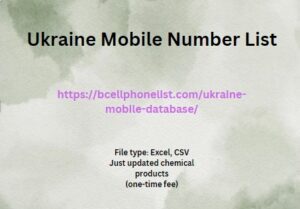Post by arfanho7 on Feb 25, 2024 0:31:19 GMT -5
It has become fundamental to even the most traditional aspects of management from building competitive advantage to understanding customers to forecasting trends and boosting productivity. The genie is out of the bottle says Lakhani. As a result we need to educate train and inform. Thick as Thieves Dishonest Behavior and Egocentric Social Networks by Jooa Julia Lee Dong Kyun Im Bidhan L. Parmar and Francesca Gino In a series of laboratory and online experiments the authors examined the relational and psychological consequences of dishonest behavior.
Findings suggest that individuals perceived social relationships are key to regulating human morality. While earlier research has shown that a cohesive social network can temper one s moral Ukraine Mobile Number List behavior through shared norms this new work demonstrates a flip side People often construct their own social network as a way to defend themselves from threatening information. Author Abstract People experience a threat to their moral self concept in the face of discrepancies between their moral values and their unethical behavior.

We theorize that people s need to restore their view of themselves as moral activates thoughts of a high density personal social network. to more likely engage in further unethical behavior. In five experiments participants reflected on their past unethical behavior and then completed a task designed to measure network density. Those who cheated more frequently in the past recalled their negative moral identity or decided to lie were more likely to activate a high density network Experiments.
Findings suggest that individuals perceived social relationships are key to regulating human morality. While earlier research has shown that a cohesive social network can temper one s moral Ukraine Mobile Number List behavior through shared norms this new work demonstrates a flip side People often construct their own social network as a way to defend themselves from threatening information. Author Abstract People experience a threat to their moral self concept in the face of discrepancies between their moral values and their unethical behavior.

We theorize that people s need to restore their view of themselves as moral activates thoughts of a high density personal social network. to more likely engage in further unethical behavior. In five experiments participants reflected on their past unethical behavior and then completed a task designed to measure network density. Those who cheated more frequently in the past recalled their negative moral identity or decided to lie were more likely to activate a high density network Experiments.